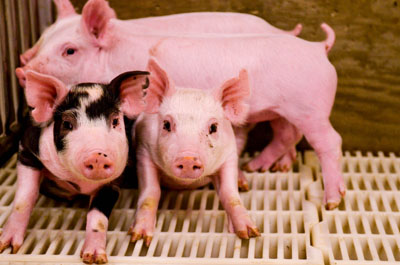Toxoplasma gondii is a protozoan parasite of the family of Sarcocystiidae. Infections by the protozoan parasite are widespread in humans and many other species of warmblooded
animals. It occurs worldwide, however, the prevalence within the animal and human population are different between countries and holding conditions.
T. gondii undergoes an asexual reproductive cycle in all species where as in felidae, the definitive host, the parasite simultaneously undergo a sexual cycle or replication.
Carnivores and omnivores, including humans, can become infected when they eat raw or undercooked meat containing tissue cysts, tachyzoites or consume food or water
contaminated with oocysts. The cat plays an important role in the epidemiology of toxoplasmosis. However, the prevalence found in human can not be maintained by the
cat only, suggesting human infection trough ingestion of contaminated food such as pig meat.
The Kernel Toxoplasma Ab porcine is a reliable and fast diagnostic test for detection of antibodies against Toxoplasma in porcine serum, plasma and meat juice samples and can be used for monitoring and surveillance purposes.




